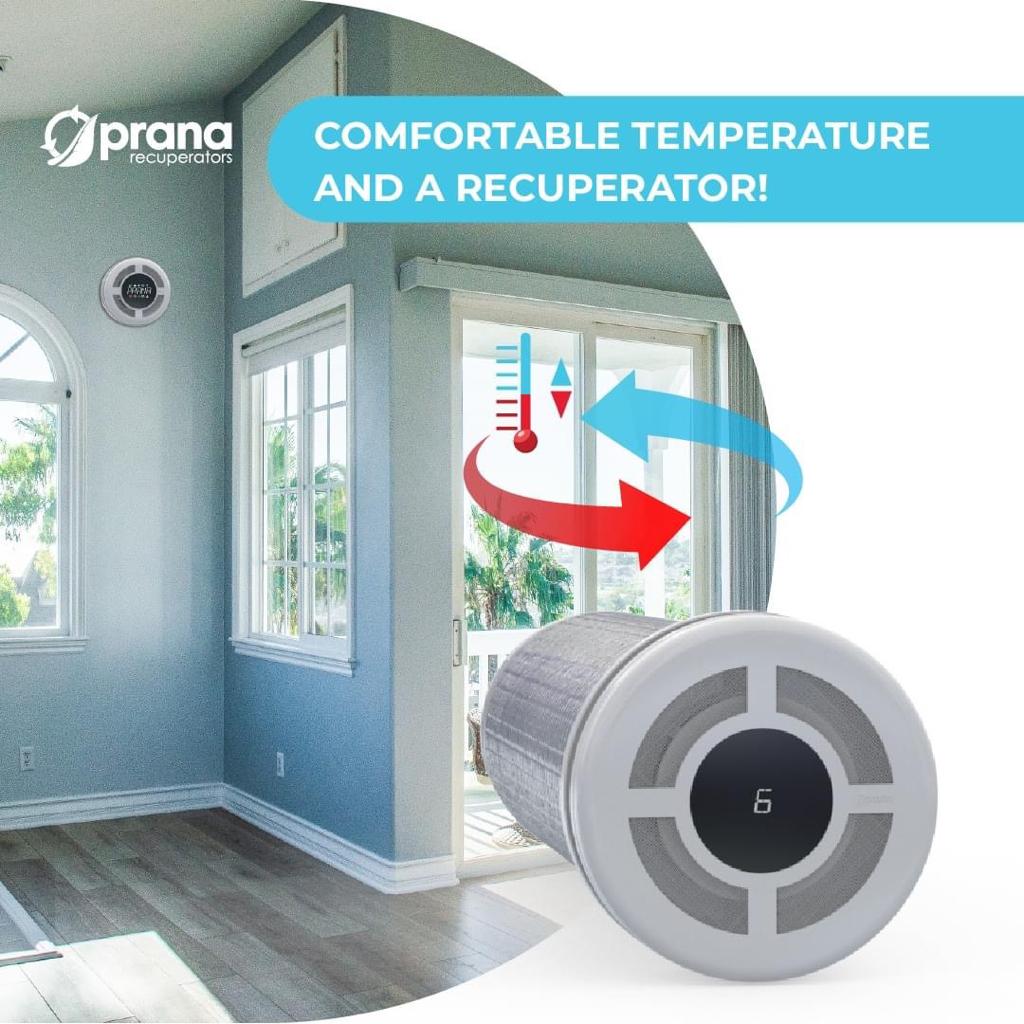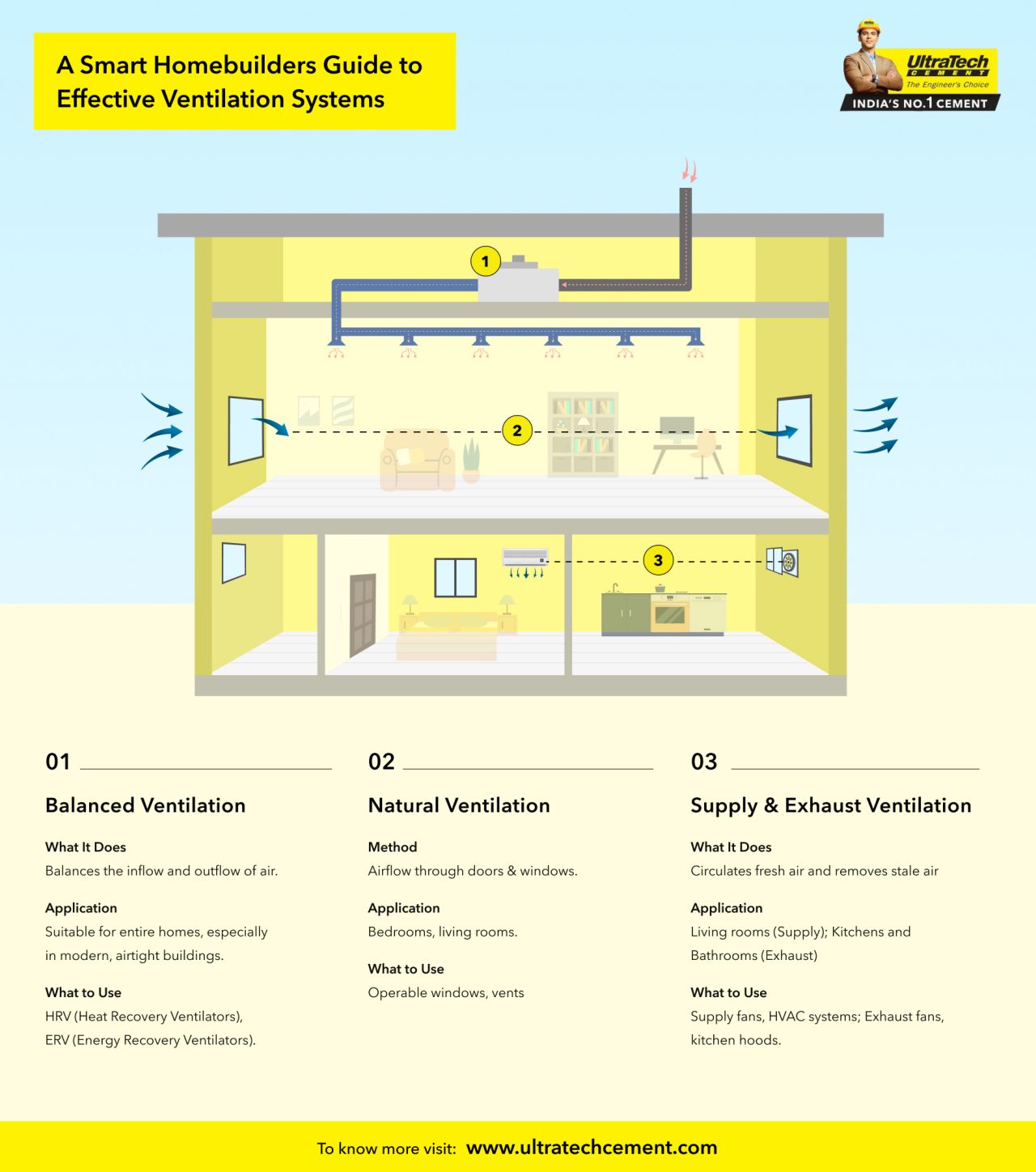The Role of Home Air Flow in Protecting Against Mold And Mildew and Indoor Allergens
Home ventilation is a crucial component in preserving a healthy indoor setting. It controls humidity degrees, which can protect against the development of mold and the accumulation of allergens. Several property owners overlook the relevance of appropriate ventilation, typically causing hidden issues. Understanding exactly how ventilation systems feature and their influence on air top quality might be the key to a much healthier home. What actions can be taken to improve these systems effectively?
Comprehending Home Air Flow Systems
While several homeowners may forget the importance of ventilation, recognizing home ventilation systems is crucial for preserving interior air top quality and avoiding mold development - Home Ventilation Melbourne. These systems promote the exchange of stale indoor air with fresh outside air, properly reducing pollutants and wetness degrees. Usual types include natural air flow, which depends on wind and temperature distinctions, and mechanical air flow, which makes use of ducts and followers to manage air flow. Furthermore, balanced ventilation systems integrate both methods to enhance air high quality. Appropriately created and preserved ventilation systems can assist regulate temperature and humidity, ensuring a comfy living setting. Home owners need to take into consideration variables like home environment, design, and occupancy when picking an air flow system to finest fit their demands and boost overall air quality
The Influence of Moisture on Mold And Mildew Development
Moisture plays a crucial duty in mold development, making it a vital factor for home owners to keep an eye on. Mold thrives in environments where moisture levels exceed 60%, as these problems supply the moisture essential for spores to multiply and germinate. High moisture can result from different sources, consisting of bad air flow, water leaks, and cooking or showering activities. When moisture degrees stay raised, mold can develop quickly on organic materials such as drywall, wood, and textile. House owners ought to utilize dehumidifiers and ensure correct ventilation in areas vulnerable to moisture, such as shower rooms and cellars. Preserving indoor moisture between 30% and 50% can greatly minimize the danger of mold and mildew development, adding to a healthier living environment.
Recognizing Typical Indoor Allergens
Interior settings can harbor a selection of allergens that affect health and comfort. Usual interior allergens consist of dust termites, animal dander, mold and mildew spores, and plant pollen. Dust termites thrive in bed linens, carpetings, and upholstery, eating organic material and contributing to breathing problems. Animal dander, composed of small flakes from skin and fur, can set off allergic reactions in sensitive individuals. Mold and mildew spores, frequently present in damp areas, can proliferate and affect air top quality. In addition, plant pollen can penetrate homes with open windows or on clothes. Determining these allergens is vital for preserving a healthy interior setting. Recognition of their visibility enables house owners to take positive procedures to lessen direct exposure and enhance general indoor air high quality.
Benefits of Proper Air Flow
Correct air flow is necessary for preserving a healthy indoor environment, as it aids to control air high quality and decrease the buildup of pollutants. Ample air movement helps with the exchange of indoor and exterior air, thereby watering down hazardous substances such as unpredictable organic substances, allergens, and dust. This procedure not just improves comfort but additionally adds to the overall health of residents more information by reducing respiratory concerns (Home Ventilation Melbourne). Proper ventilation successfully controls humidity degrees, lowering the possibility of mold and mildew development and fostering a drier environment favorable to wellness. Additionally, it can boost energy effectiveness by ensuring that heating & cooling systems operate much more properly, leading to reduced energy expenses. On the whole, proper air flow is an important component in promoting a healthy and balanced and safe space

Tips for Improving Home Ventilation
Several house owners might overlook it, improving home ventilation is necessary for boosting air quality and avoiding mold and mildew growth. One efficient strategy is to consistently open home windows to advertise cross-ventilation, allowing fresh air to distribute. Installing exhaust fans in bathroom and kitchens can successfully eliminate moisture-laden air, minimizing moisture degrees. Homeowners need to additionally take into consideration using air cleansers with HEPA filters to record allergens and pollutants. On a regular basis preserving heating and cooling systems, including transforming filters, assurances peak air movement and effectiveness. Sealing leakages around windows and doors can stop outside air from getting in, which assists maintain a regular indoor environment. Integrating houseplants can naturally enhance air quality while including aesthetic worth to the home.
Frequently Asked Inquiries
How Usually Should I Clean My Home Air Flow System?
Identifying just how typically to clean a home air flow system depends on different variables, including use and environmental problems. Home Ventilation Melbourne. Generally, experts recommend a thorough cleansing every three to 5 years to maintain suitable airflow and performance
Can Plants Help In Reducing Indoor Allergens?
Research study shows that certain interior plants may aid reduce irritants by improving air top quality and enhancing moisture. Their effectiveness differs, and keeping a clean atmosphere continues to be crucial for managing interior irritants efficiently.
What Sorts Of Air Filters Are Finest for Mold Avoidance?

Exist Specific Air Flow Demands for Cellars?

Exactly how Do I Know if My Air Flow Is Functioning Properly?
To figure out reliable ventilation, one should check humidity levels, examine airflow via vents, and observe signs of condensation or stationary air. Routine analyses can show whether the system adequately distributes and exchanges interior air.
Recognizing how ventilation systems function and their influence on air high quality could be the trick to a healthier living space. While numerous house owners might overlook the significance of ventilation, comprehending home air flow systems is essential for preserving interior air quality and protecting against mold and mildew growth. Usual types consist of all-natural air flow, which counts on wind and temperature level distinctions, and mechanical air flow, which makes use of air ducts and followers to manage air flow. Appropriate ventilation is essential for maintaining a healthy indoor atmosphere, as it assists to control air top quality and minimize the accumulation of pollutants. Many homeowners might forget it, boosting home ventilation is vital for enhancing air quality and preventing mold and mildew development.